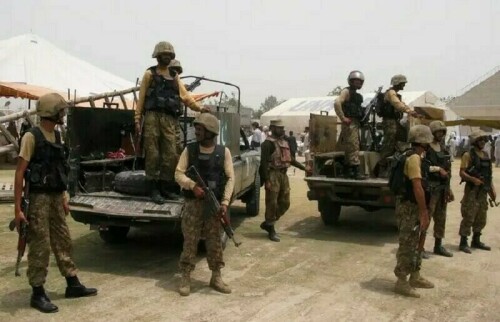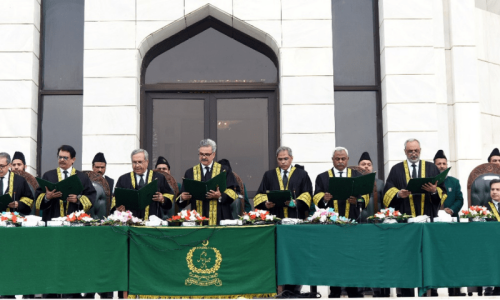Bill for delisting Pakistan as major ally tabled in US Congress

WASHINGTON: A bill seeking to remove Pakistan from a list of America’s major non-Nato allies has been introduced in the US Congress, even though the Trump administration enhances its contacts with Islamabad in its pursuit of a peaceful end to the Afghan war.
The resolution — introduced by Congressman Andy Biggs who, like the Trump administration, is a Republican — sets new conditions for future re-designation.
Also read: Pak-US ties should not be viewed only through Afghan or Indian lens, says FM Qureshi
If a US president desires to put Pakistan back on the list, he or she will have to certify to Congress that Pakistan continues to conduct military operations that are contributing to significantly disrupting the “safe haven and freedom of movement” of the Haqqani Network in the country.
Trump administration unlikely to support move
The president also has to certify that Pakistan has shown progress in arresting and prosecuting Haqqani Network’s senior leaders and mid-level operatives.
Take a look: Pakistan has given us nothing but lies and deceit, says US President Donald Trump
The re-designation will require another certification from Congress that Pakistan has taken steps to demonstrate its commitment to preventing the Haqqani Network from using any Pakistani territory as a safe haven and that Pakistan actively cooperates with Afghanistan to restrict the movement of militants along the Afghanistan-Pakistan border.
Known as Resolution H.R. 73, the bill has been sent to the House Foreign Affairs Committee for necessary action.
Mr Biggs, a second-term legislator, has no cosponsor and his move will need a strong support from the Trump administration and the Democratic Party to pass a House dominated by the Democrats.
In recent statements, President Donald Trump has clearly expressed his desire to withdraw at least half of the 14,000 US troops still stationed in Afghanistan.
Senior Democrats — both in and outside Congress — have also said that the United States cannot remain involved in these apparently unending wars in Afghanistan and Syria.
But before an ultimate withdrawal from Afghanistan, the Trump administration wants to ensure that the pullout does not lead to the collapse of the US-backed Afghan government in Kabul.
To achieve this target, the US has initiated a series of dialogues with the Taliban leadership, hoping to make them participate in a future set-up in Kabul as partners of the Afghan government.
The fourth round of US-Taliban talks, which was to be held last week either in Riyadh or Doha, had to be postponed after Taliban refused to sit with Kabul’s representatives.
The Trump administration wants Afghanistan’s neighbours, particularly Pakistan, to use their influence to persuade the Taliban to stay engaged and accept the Kabul government. Washington believes that Islamabad can play a key role in making this possible.
Last week, the US once again sent its special envoy for Afghanistan to the region with a task to convince Pakistan, India and China to work together to ensure the success of the Afghan peace initiative.
It is unlikely that the Trump administration would encourage any move to further isolate Pakistan in the present circumstances.
Published in Dawn, January 14th, 2019













































